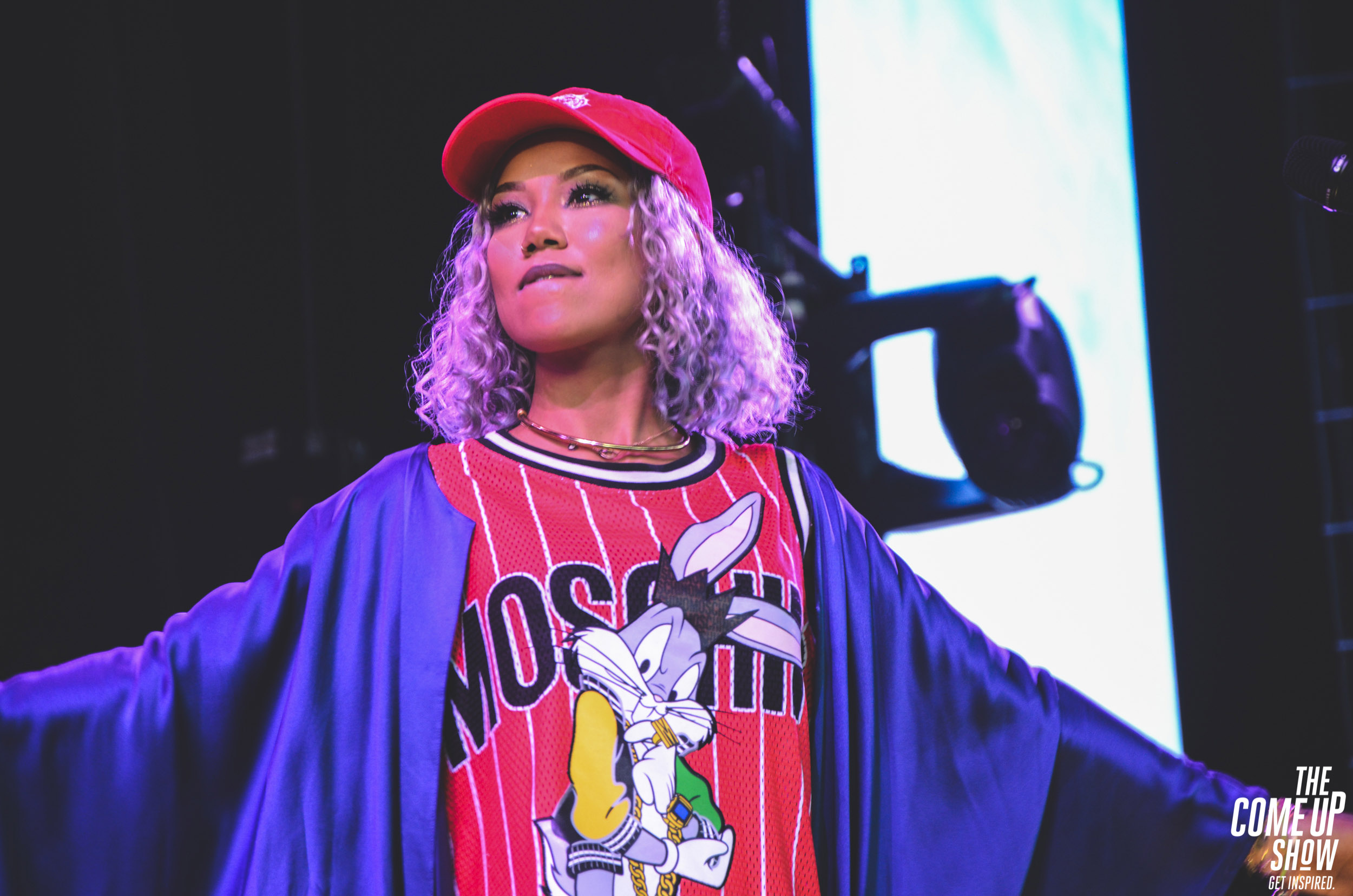Jhené Aiko and the Problem of Multiracial Self-RepresentationPosted in Anthropology, Articles, Arts, Asian Diaspora, Latino Studies, Literary/Artistic Criticism, Media Archive, United States, Women on 2019-02-02 03:53Z by Steven |
Jhené Aiko and the Problem of Multiracial Self-Representation
Hapa Music is Black and Brown
Discover Nikkei
2019-01-29
Sonia C. Gomez, Postdoctoral Fellow
Mahindra Humanities Center
Harvard University
 Jhené Aiko. Photo courtesy of The come Up Show. |
At the 2018 VH1 Mother’s Day music tribute concert titled, Dear Mama: A Love Letter to Moms, Grammy nominated singer and songwriter Jhené Aiko recited this poem she wrote for her mother, Christina Yamamoto, a woman of African American and Japanese ancestry:
“I found another grey hair today but I was not bothered at all. I feel like I earned it. I’m better, I’m wiser, I’m leveling up overall. I am becoming my mother, my beautiful mother, who taught me with age, comes might. I’m becoming my mother, my beautiful mother, she is love in the flesh, what a sight.”
Afterwards, Aiko and her young daughter, Namiko Love, serenaded the audience with an original song Aiko wrote titled, Sing to Me. The performance was a touching display of affection between three generations of women, and as such, offers an opportunity to reflect on the role Aiko’s mother’s racial heritage has played in Aiko’s musical career. After all, she is her mother’s daughter.
Jhené Aiko Chilombo was born in 1988 in Los Angeles to Christina Yamamoto, a woman who is African American and Japanese, and Karamo Chilombo, a man of mixed-Black and Native American ancestry. Aiko is one of five siblings who grew up in a multiracial and tight-knit family from Ladera Heights, a Black middle-class enclave in south Los Angeles. Aiko’s sister, Mila J, is a singer, songwriter, and dancer herself…
Read the entire article here.